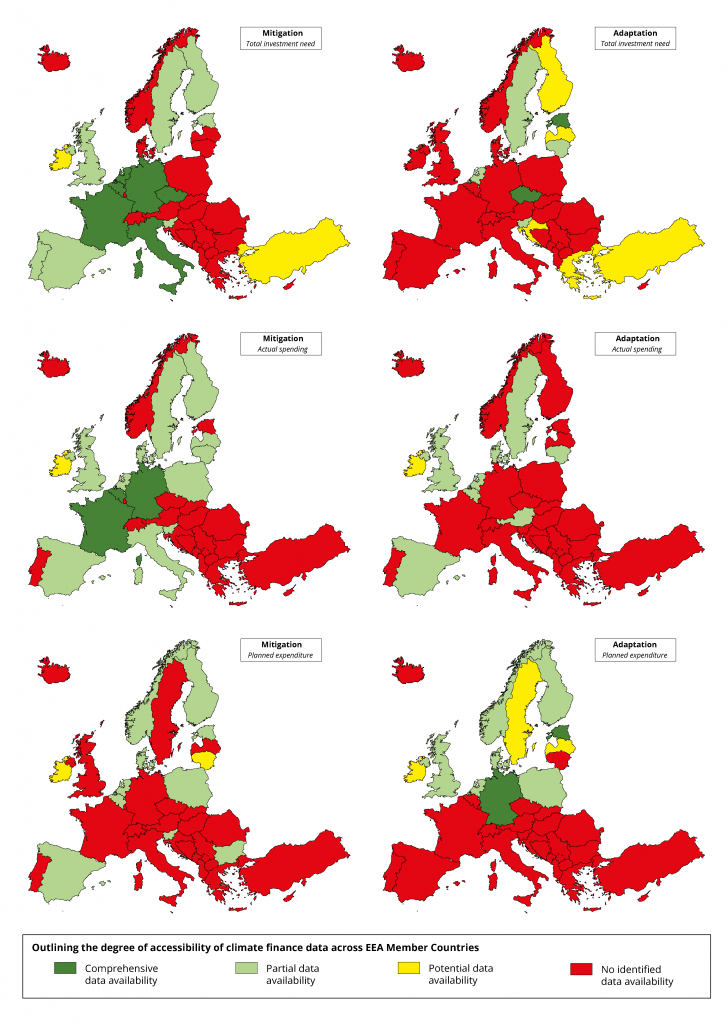- Client: European Environment Agency (EEA)
- Implementation period: January, 2016 - April, 2017 (Completed)
- Geographic coverage: Europe
- Theme: Climate Change
- Topic: International Climate Finance
- Experts: Lisa Eichler, Koen Rademaekers, Carmen van den Berg, Jeroen van der Laan, Hans Bolscher
What is the state-of-play of climate finance tracking in Europe?
The transition to a low-carbon and climate-resilient economy requires an unprecedented redirection of social and economic activities. Consequently, the investment questions – how much is needed to achieve the domestic energy and climate targets and how will this be financed – represent some of the main knowledge challenges that need to be tackled urgently. To this end, the EEA requested this stocktaking exercise, to assess the current status of climate finance tracking across 33 EEA member countries. The main objective of the study was to identify data and knowledge gaps involved in tracking domestic climate finance, i.e. finance for climate mitigation and adaptation activities within Europe.

The assessment results indicate that few European countries have translated their national climate and energy objectives into corresponding investment needs and plans. Consequently there is a lack of country-level regarding estimated total investment needs, as well as their current and planned expenditure volumes for climate mitigation and adaptation activities. These data gaps concern both public and private sources of finance.
The report proposes how to prioritise identified gaps. This results in the following specific and broader ‘cross-cutting’ data and knowledge gaps (in no particular order of importance):
- Lack of disaggregated energy efficiency data, in particular for energy efficiency in buildings
- Lack of comprehensive total adaptation investment needs estimation
- Lack of sufficiently comprehensive finance data across adaptation areas
- Lack of common definitions, scope and tracking methodologies
- Limited technical knowledge on the topic of domestic climate finance tracking among key stakeholders
- Insufficient data availability across different types of financing flows from Member State level
- Lack of disaggregation of overall EU Budget and EU Financial Institution investment available for climate-relevant spending (no adaptation/mitigation split)
- Lack of publicly available data from all private sources of finance
The report then suggests next steps towards improved domestic climate finance tracking, presenting five building blocks that could form part of a wider roadmap or strategy for tackling the identified key data and knowledge gaps.